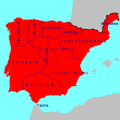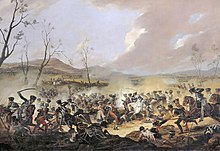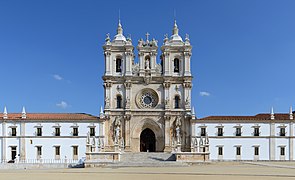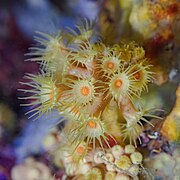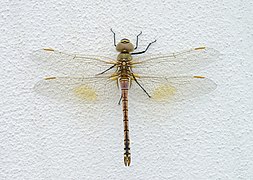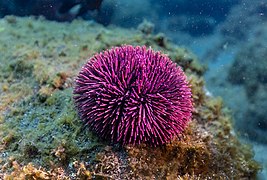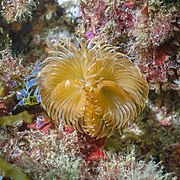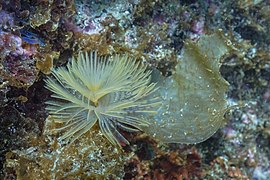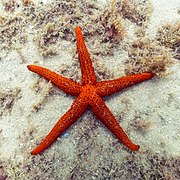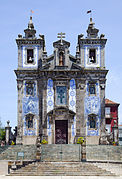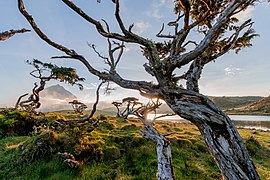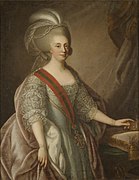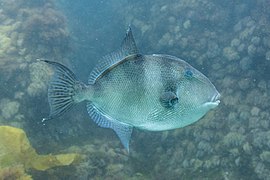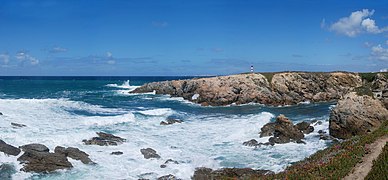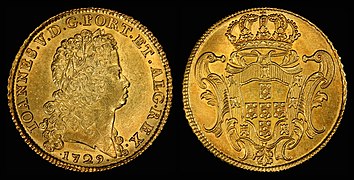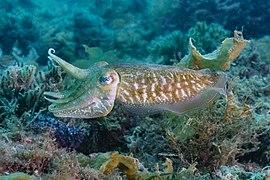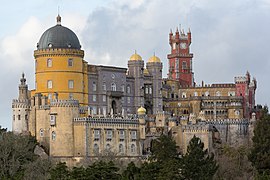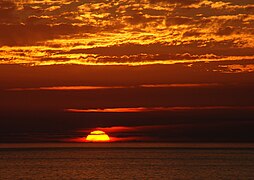Portal:Portugal
Welcome to the Portugal portal  Portugal, officially the Portuguese Republic, is a country located on the Iberian Peninsula, in Southwestern Europe, and whose territory also includes the Macaronesian archipelagos of the Azores and Madeira. It features the westernmost point in continental Europe, its mainland west and south border with the North Atlantic Ocean and in the north and east, the Portugal-Spain border constitutes the longest uninterrupted border-line in the European Union. Its archipelagos form two autonomous regions with their own regional governments. In the mainland, Alentejo region occupies the biggest area but is one of the regions in Europe with a lower population density. Lisbon is the capital and largest city by population, being also the main spot for tourists alongside Porto and Algarve. One of the oldest countries in Europe, its territory has been continuously settled and fought over since prehistoric times. The territory was inhabited by the Celtic and Iberian peoples, such as the Lusitanians, the Gallaecians, the Celtici, Turduli, and the Conii. These peoples had some commercial and cultural contact with Phoenicians, ancient Greeks and Carthaginians. It was later ruled by the Romans, followed by the invasions of Germanic peoples together with the Alans, and later the Moors, who were eventually expelled during the Reconquista. Founded first as a county within the Kingdom of León in 868, the country officially gained independence as the Kingdom of Portugal with the Treaty of Zamora in 1143. During the 15th and 16th centuries Portugal led the Age of Discovery and established one of the longest-lived maritime and commercial empires, becoming one of the main economic and political powers of the time. By the early 19th century, events such as the 1755 Lisbon earthquake, the country's occupation during the Napoleonic Wars, and the resulting independence of Brazil in 1822 led to a marked decay of Portugal's prior opulence. This was followed by the civil war between liberal constitutionalists and conservative absolutists over royal succession from 1828 to 1834. The 1910 revolution deposed Portugal's monarchy, and established the democratic but unstable Portuguese First Republic, later superseded by the authoritarian regimes of Ditadura Nacional (National Dictatorship) and Estado Novo (New State). Democracy was restored after the Carnation Revolution (1974), ending the Portuguese Colonial War and eventually losing its remaining colonial possessions. (Full article...) Selected article -
EDP Lisbon Half Marathon is an annual international half marathon competition which is contested every March in Lisbon, Portugal. It carries IAAF Gold Label Road Race status. The men's course record of 57:31 was set by Jacob Kiplimo in 2021, which is the current world record for the half marathon distance. Kenyan runners have been very successful in the competition, accounting for over half of the total winners, with Tegla Loroupe taking the honours in the women's race on six separate occasions. The Lisbon Half Marathon is not to be confused with Luso Portugal Half Marathon, another prominent half marathon race which is also held in Lisbon in October. (Full article...)
This is a Featured article, which represents some of the best content on English Wikipedia.
The Battle of Albuera (16 May 1811) was a battle during the Peninsular War. A mixed British, Spanish and Portuguese corps engaged elements of the French armée du Midi (Army of the South) at the small Spanish village of Albuera, about 20 kilometres (12 mi) south of the frontier fortress-town of Badajoz, Spain. From October 1810, Marshal Masséna's French Army of Portugal had been tied down in an increasingly hopeless stand-off against Wellington's Allied forces, safely entrenched in and behind the Lines of Torres Vedras. Acting on Napoleon's orders, in early 1811 Marshal Soult led a French expedition from Andalusia into Extremadura in a bid to draw Allied forces away from the Lines and ease Masséna's plight. Napoleon's information was outdated and Soult's intervention came too late; starving and understrength, Masséna's army was already withdrawing to Spain. Soult was able to capture the strategically important fortress at Badajoz on the border between Spain and Portugal from the Spanish, but was forced to return to Andalusia following Marshal Victor's defeat in March at the Battle of Barrosa. However, Soult left Badajoz strongly garrisoned. In April, following news of Masséna's complete withdrawal from Portugal, Wellington sent a powerful Anglo-Portuguese corps commanded by General Sir William Beresford to retake the border town. The Allies drove most of the French from the surrounding area and began the siege of Badajoz. (Full article...)General imagesThe following are images from various Portugal-related articles on Wikipedia.
Selected quote -"Fame, for me, is that thing that allows me to multiply number of my friends"
A fama para mim é aquilo que me permite multiplicar o número de amigos. This is a Good article, an article that meets a core set of high editorial standards.
The Battle of Orthez (27 February 1814) saw the Anglo-Spanish-Portuguese Army under Field Marshal Arthur Wellesley, Marquess of Wellington attack an Imperial French army led by Marshal Nicolas Soult in southern France. The outnumbered French repelled several Allied assaults on their right flank, but their center and left flank were overcome and Soult was compelled to retreat. At first the withdrawal was conducted in good order, but it eventually ended in a scramble for safety and many French soldiers became prisoners. The engagement occurred near the end of the Peninsular War. In mid-February, Wellington's army broke out of its small area of conquered territory near Bayonne. Moving east, the Allies drove the French back from several river lines. After a pause in the campaign, the westernmost Allied corps surrounded and isolated Bayonne. Resuming their eastward drive, the remaining two Allied corps pushed Soult's army back to Orthez where the French marshal offered battle. In subsequent operations, Soult decided to abandon the large western port of Bordeaux and fall back east toward Toulouse. The next action was the Battle of Toulouse. (Full article...)Selected Biography -Ferdinand Magellan (c. 1480 – 27 April 1521) was a Portuguese explorer best known for having planned and led the 1519 Spanish expedition to the East Indies across the Pacific Ocean to open a maritime trade route, during which he discovered the interoceanic passage thereafter bearing his name and achieved the first European navigation to Asia via the Pacific. After his death, this expedition was the first to circumnavigate the globe in 1519–22 in the service of Spain. Born c. 1480 into a family of minor Portuguese nobility, Magellan became a skilled sailor and naval officer in service of the Portuguese Crown in Asia. King Manuel I refused to support Magellan's plan to reach the Maluku Islands or Moluccas (the "Spice Islands"), by sailing westwards around the American continent. Magellan left Portugal and proposed the same expedition to King Charles I of Spain, who accepted it. In Seville he married, fathered two children, and organised the expedition. For his allegiance to the Hispanic monarchy, in 1518, Magellan was appointed an admiral of the Spanish fleet and given command of the expedition – the five-ship Armada of Molucca. He was also made Commander of the Order of Santiago, one of the highest military ranks of the Spanish Empire. (Full article...)Selected picture - The Hieronymites Monastery (Mosteiro dos Jerónimos).
Did you know -
Portugal topicsPortugal lists
SubcategoriesRecognized content
Featured articles
Former featured articlesFeatured listsFormer featured listsGood articles
Former good articlesDid you know? articles
Featured pictures
Former featured portalsIn the News articles
Main page featured articles
Picture of the day pictures
Featured topicsNew articlesThis list was generated from these rules. Questions and feedback are always welcome! The search is being run daily with the most recent ~14 days of results. Note: Some articles may not be relevant to this project.
Rules | Match log | Results page (for watching) | Last updated: 2024-05-13 21:59 (UTC) Note: The list display can now be customized by each user. See List display personalization for details.
Things you can doRelated PortalsRelated WikiProjects
Associated WikimediaThe following Wikimedia Foundation sister projects provide more on this subject:
Discover Wikipedia using portals |


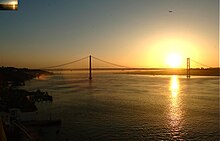

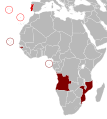
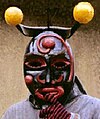









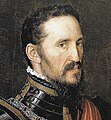





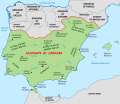





![Image 25Maios celebration in Madeira island [1] (from Culture of Portugal)](http://upload.wikimedia.org/wikipedia/commons/thumb/e/e1/2011-03-05_03-13_Madeira_045_Santana_%285543431418%29.jpg/120px-2011-03-05_03-13_Madeira_045_Santana_%285543431418%29.jpg)





















